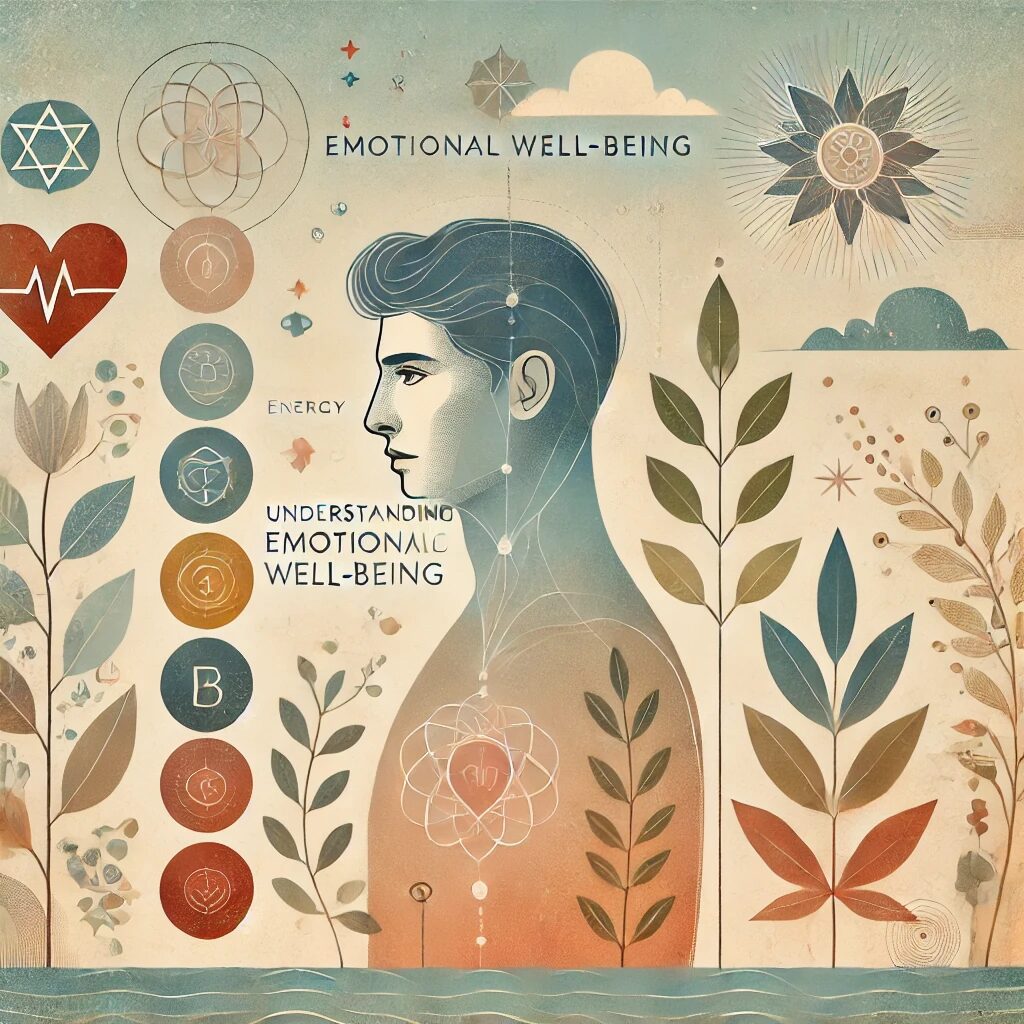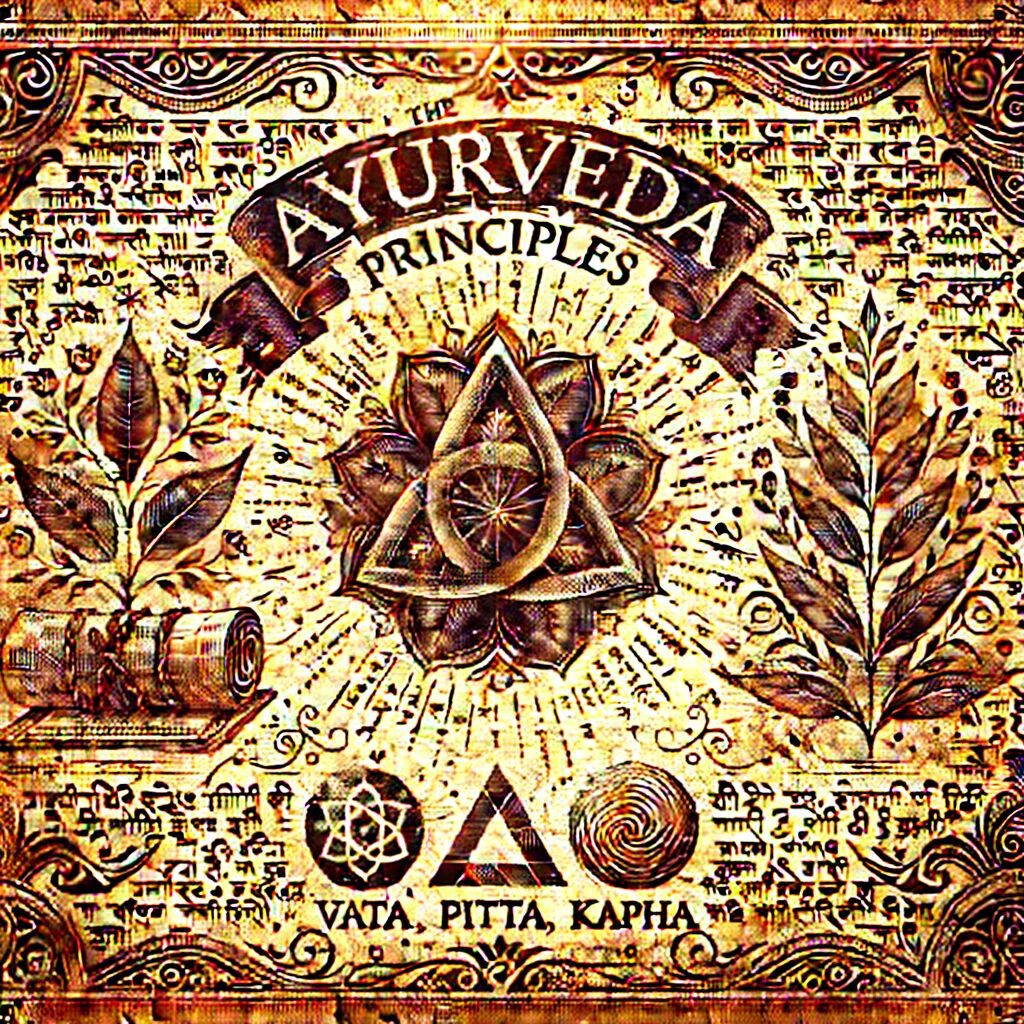Enhancing Emotional Well-Being with Ayurveda: A Holistic Approach to Wellness
By Dennis Bluthardt at Namaste Studios
In an ever-accelerating world, emotional health has become increasingly important. Often, feeling overwhelmed, stressed, or anxious is just part of a day’s work.
This widespread sentiment has led many to point out that an entirely different system must take over, seeking to identify and treat the cause of the problem rather than simply surviving the symptoms.
Enter Ayurveda. This ancient Indian “science of life” is a straightforward system for communicating to practitioners what they ought to do to not only fix what is wrong but also maintain and encourage their bodies to a peak normal state. This framework covers the spectrum of possible issues, including hot-button items of late, like mental sharpness, hormones, circulation, digestion, immunity, and stress. Now, are you beginning to see why so many people find Ayurvedic methods valuable supplements to their lives?
In the rest of this guide, you’ll receive targeted Ayurvedic takeaways for increasing your odds of success in other areas, including the musculoskeletal system, mental health, hormonal (endocrine) systems, children’s health, alternations with nature, heart health, and more.

Mindfulness and Self-Care Practices
Emotional well-being is the fruit of being mindful. Put simply; mindfulness means paying attention to thoughts and feelings with a greater level of awareness while also being completely unbiased, watching everything come and go around you while you sit back on a park bench and not giving a damn (even if you see a tree grow roots, drop its leaves, and then turn to grey).
Coupled with resilience strategies for dealing with stress and anxiety once these thoughts are observed, mindfulness becomes the most helpful tool for having a balanced emotional day.
In addition to cultivating this foundational presence, many Ayurvedic meditations and exercises can help. Trataka (aka candle gazing) is particularly effective at honing the mind’s focus and calming it down. Guided visualization helps reduce anxiety and depression-like symptoms by allowing people to get into a mental space that brings them peace. Various Pranayama, or breathing exercises, help control the mind by regulating nervous system functions.
Regular self-care practices are effective, too. Abhyanga (aka: “Today sucks, I need a massage”) serves to promote relaxation and allows you time to be mindful. Herbal teas are a quick, cheap, and popular way to alter the mind by soothing it further (if you’re looking for your first, chamomile competes head-to-head with more nuanced herbs like ashwagandha in recent studies). Journaling or going outside for a walk are other “mindfulness” practices that promote positive outlooks on life. The sheer quantity of Ayurvedic and mindfulness activities in and outside the Brahmana makes them accessible and beneficial.

Stress Management through Ayurvedic Practices
Our emotional well-being can be affected profoundly by stress. It can lead us to experience anxiety and depressive states. When we are afflicted by chronic stress, it blunts our ability to operate at full capacity, even in the fundamental areas of managing everyday life. This signals the vital importance and need to manage stress for our mental health and optimal quality of life.
That is where practices like yoga and massage come in.
Yoga and massage therapy have been shown to help people reduce the amount of stress they feel.
The discipline of performing yoga often incorporates three activities: physical postures, controlled breathing, and a period of meditation. The active performance of these three steps places your mind in a relaxed and more concentrated state to foster robust stress resilience. In addition to yoga, the supplementary incorporation of these practices into your daily life can help engender subsequent symptomatic relief from chronic stress:
- Engage in physically active hobbies.
- Exercise regularly and eat healthy.
- Get plenty of sleep.
- Use your time in nature to relax and unwind.
- Practice “interpreter.” More so, strive to increase your social circles and make time to spend with your large groups of friends so you can receive the essential social support to aid you in managing your stress.

Understanding Emotional Well-Being
“Emotional well-being” is the term used to describe an individual’s capacity to understand and manage their emotions recognizably and maintain a positive direction in their immediate life.
Interacting terms often include self-acceptance, resilience, and forming good, satisfying, and equal relationships with others. Many would describe someone’s “emotional well-being” as the most critical element of “health.” If we break health apart into that cliché definition, “how we think, feel, and act,” good emotional well-being, after all, does all three correctly.
That being said, poor emotional well-being is also largely suspected to “cause” many of the physical ailments finding themselves on this list today; poor emotional well-being will not start one’s heart disease, though it is sure to help (as, at that point, it infects our dietary actions, vulnerable organs in the circulatory system, and focus upon the future, itself), for enough topics to make things interesting. Yes, extensive, “worse, hopeless” scenarios will cause an adverse physical reaction in anyone. Many have chronic pain. Many diversified individuals especially find themselves here. Some of us want to disappear. Getting through one exercise for new distractions at a time is okay. Many, indeed, have the debilitating and multivariate symptoms associated with a large “pile” of other stresses.

The Principles of Ayurveda
Ayurveda is a traditional system of medicine that takes a holistic outlook on health and well-being. It sees health as a state of balance, a place of effective regulation and homeostasis of the body-mind-spirit. When these dimensions of the human experience are balanced, an individual enjoys good health. In a space of imbalance, disease (physical and emotional) can manifest. Ayurveda places an onus on the individual to strive to understand themselves and their place in life. Doing so lets the person know how best their unique constitution and lifestyle choices can be synchronized.
This (above) form of argumentation follows from the Ayurvedic explication of the three humors or so-called “biological forces” that must be kept in balance to enjoy good health—the doshas (Vata, Pitta, Kapha).
These doshas are a mixture of the five significant elements (Panchamhabuta)—earth, water, fire, air, and ether (seen as space more so than a “fifth element”), expressed as three main archetypal “temperaments.”
The doshas manifest as follows:
- The airy/spacey Vata dosha governs creativity/originality of thought and movement (peristalsis or joint motion), and so on. Too much Vata (imbalance) can = anxiety and restlessness
- The fiery/watery Pitta dosha controls digestion, metabolism, maintaining body temperature, processing and “burning up” stuff, and so on. Excess Pitta can cause anger, irritability, etc.
- The earthy/watery (phlegmatic) Kapha dosha regulates physical structure, body bulk, cell and tissue (anabolic) proliferation, and so on. It equals “mucoid” in a “modern” medical Ayurvedic diagnosis (the so-called Kapha nature!). Too much Kapha = lethargy, procrastination, and so on.
You get the idea.
As you understand the doshas better, you will quickly learn what “emotional states” you typically succumb to with your unique biology (an Ayurvedic constitutional analysis). Knowing these sorts of things about yourself (or even bringing these facts to conscious “awareness”) will likely help you form connections between, say, poor eating habits and sudden bouts of anger (e.g., think of yourself or others who might get “hangry”).
These connections an individual (you) can start to make about themselves can overflow into other dimensions in life. Not only will you promote and improve physical health, but emotional/mental health will also be “boosted,” holistically bringing “you” back into balance and elevating your overall well-being on all levels of life.

Natural Remedies for Emotional Well-Being
India’s traditional medicinal system, Ayurveda, focuses on the vital link almost universally acknowledged by ancient and modern medicine between emotional and physical health.
Prominent medicinal herbs like ashwagandha and brahmi are significant in establishing emotional balance and equanimity. ASHWAGANDHA is a common herb that is not always understood well. Grown predominantly in India, ashwagandha is known best for its adaptogenic properties, which allow it to regulate or “tone” the body’s stress response, making the herb helpful in combating anxiety and a host of other ailments. BRAHMI is both even more common and even less understood. Like ashwagandha, it is also held to have properties that make it especially beneficial for emotional wellness.
Ayurveda acknowledges that no single diet is perfect for everybody. The best foods for you and your family depend on your dosha or body constitution. Eating a diet consisting primarily of fresh, colorful, and whole foods and paying attention to when and how you eat makes it almost impossible not to feel better.
Essential oils are also integral to Ayurveda, especially when working with emotions and stress. Oils like lavender and sandalwood are well-established in Western aromatherapy as aids for slipping into a more relaxed state and quieting the anxious mind. For instance, they can be used in several ways to create a calm atmosphere, diffused in a room or during a massage. The experience of being with their scent and the other multi-sensory dimensions of essential oil treatments makes an emotional shift toward wellness far more likely.
Emotional health affects how people think, act, and relate to others.
How folks interpret and deal with life’s events defines their emotional health. If two people break up with their boyfriends or girlfriends on the same day, and one of these people cries for several days thereafter, cannot get out of bed, and considers suicide. The other person feels a little sad but realizes there are many fish in the sea and plenty of time to meet the right person and goes for a run to clear their mind. The next day, it feels great. The person who has the more minor reaction to the adverse event is better at dealing with difficult periods, has better mental health, and will not be as likely to get heart disease.
To learn more, visit Ayurveda at Namaste Studios to book an Ayurveda session. Additionally, you can find more of our Ayurveda Blogs here.
For a Limited Time: Get your NEW MOON JOURNAL for a massive discount at Amazon here!
Bonus for blog readers: Watch how this Hybrid AI chatbot can save thousands of hours interacting with your clients. Click here for a FREE WEBINAR – It’s AMAZING!




